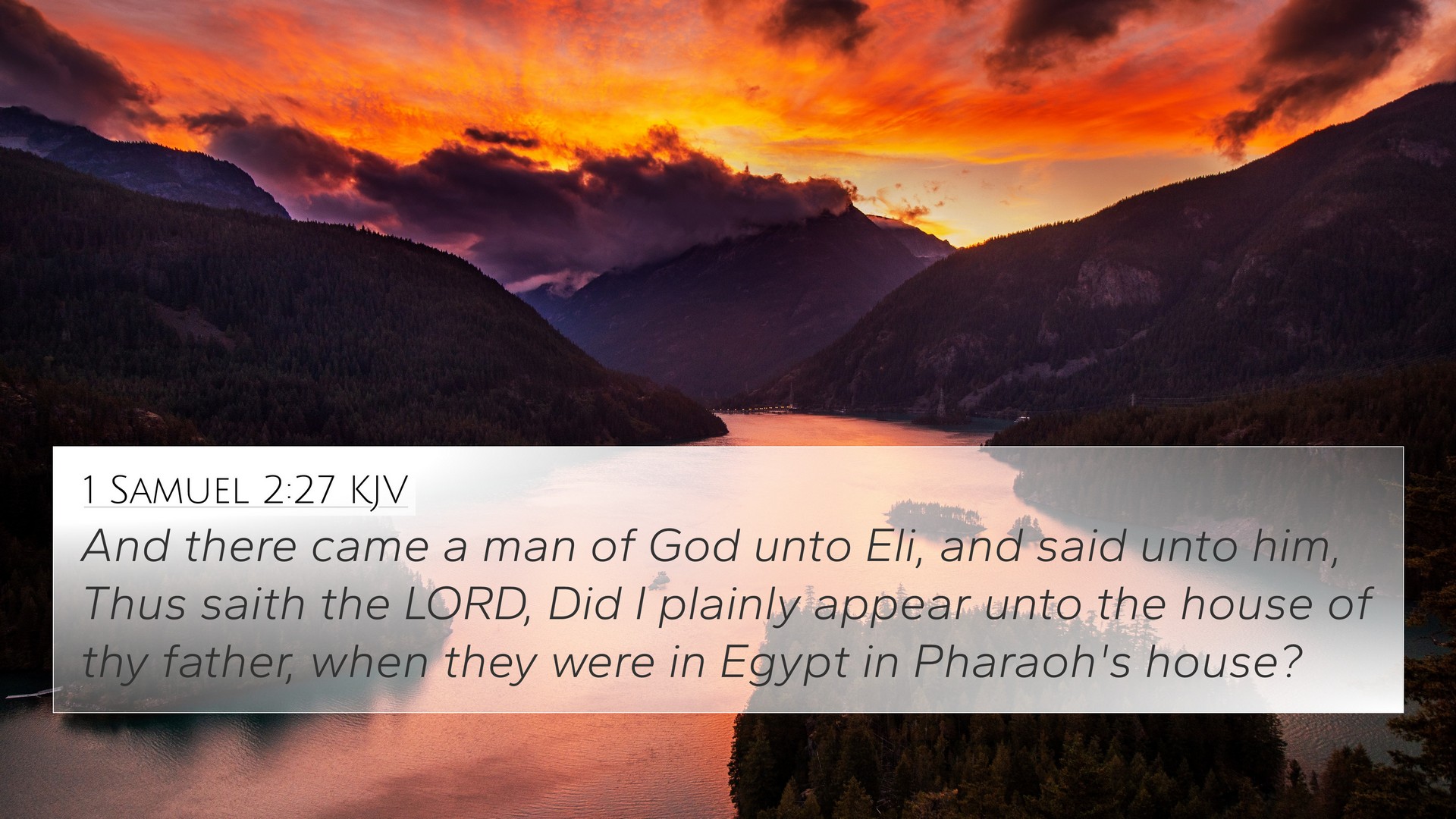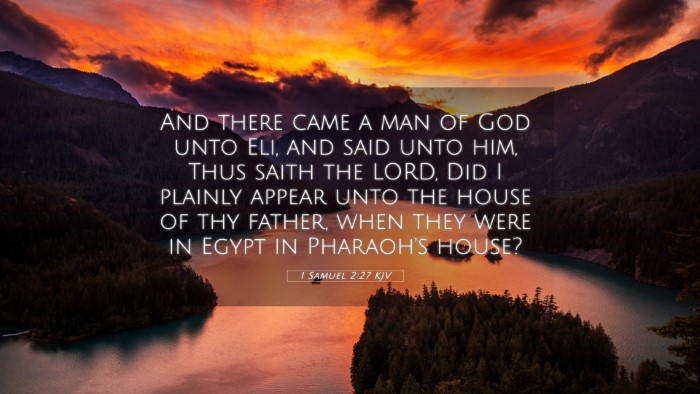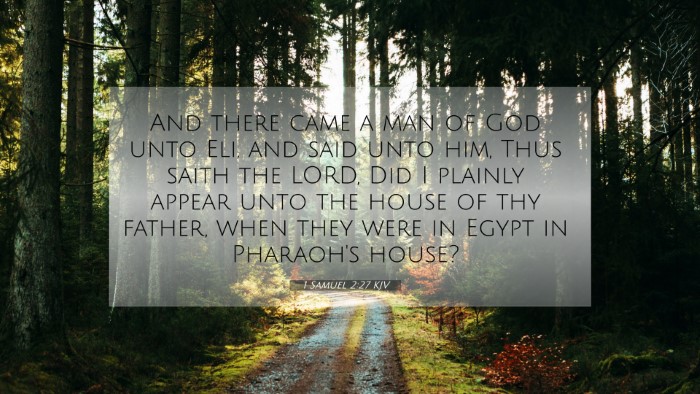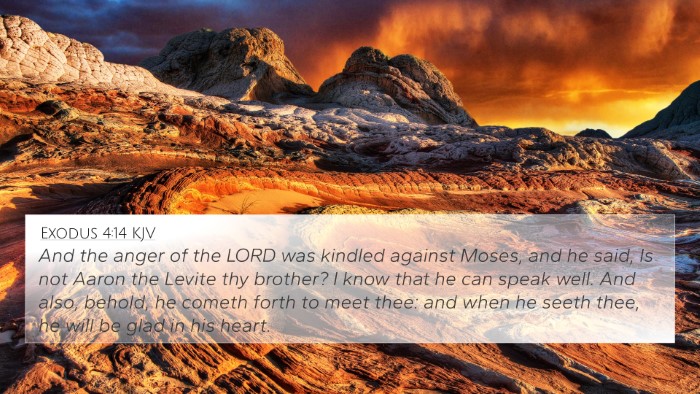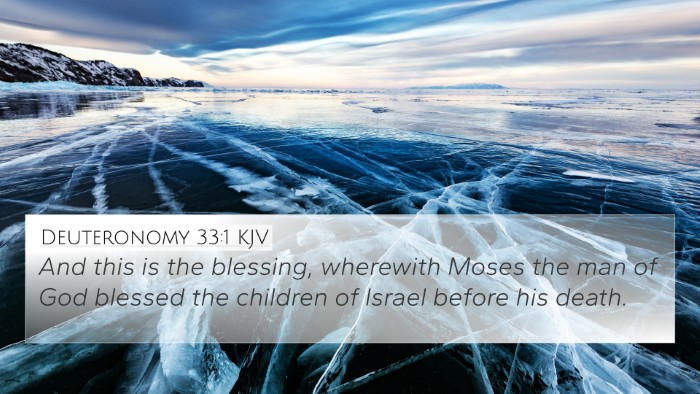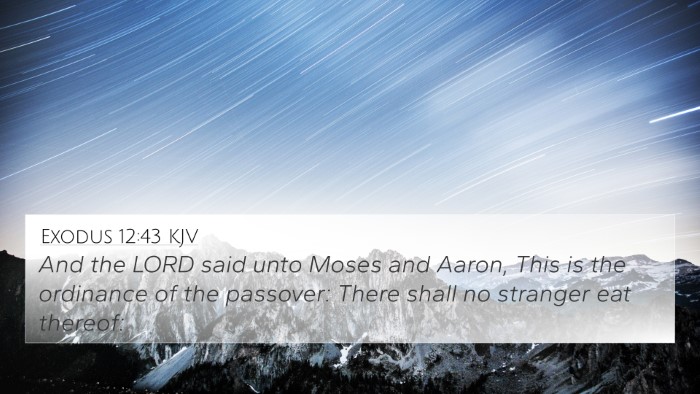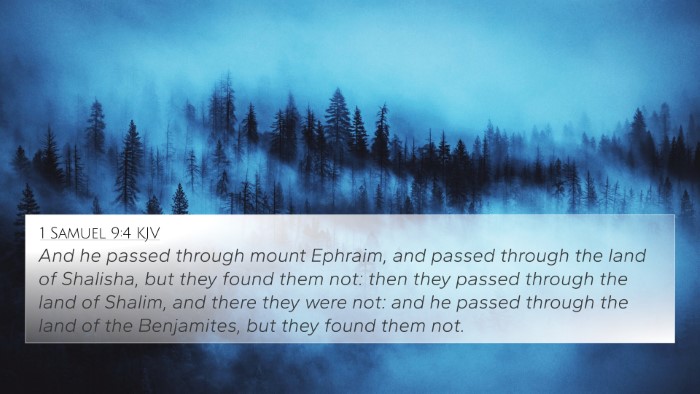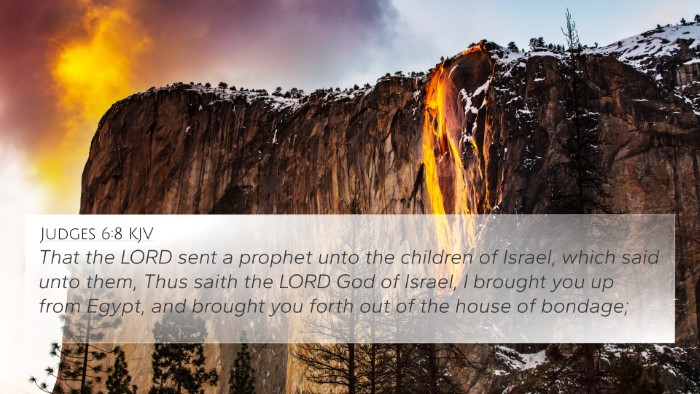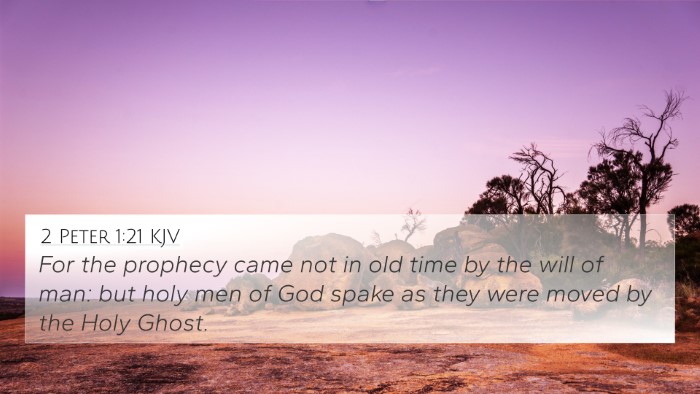Exploring the Meaning of 1 Samuel 2:27
Bible Verse: 1 Samuel 2:27 (KJV): "And there came a man of God unto Eli, and said unto him, Thus saith the LORD, Did I plainly appear unto the house of thy father, when they were in Egypt in Pharaoh's house?"
Understanding the Context
This verse is situated within the wider context of 1 Samuel, where God addresses the house of Eli through a prophet. It marks a critical moment when God reveals His displeasure with Eli's family due to their failures in priestly duties.
Commentary Insights
- Matthew Henry: He emphasizes that God has a history of speaking to His people, highlighting His constant guidance and presence. The question posed is a reminder of God's previous revelations to Israel, establishing the importance of obedience and responsibility.
- Albert Barnes: Barnes points out the significance of God's covenant with Eli's ancestors. The verse serves as a reminder of God's mighty acts and the obligation that comes with divine revelation.
- Adam Clarke: Clarke elaborates on the seriousness of Eli's priesthood and the consequences of neglecting God's commands. He suggests that the prophetic word serves to reawaken Eli to his obligations.
Thematic Connections
This verse invites readers to consider several significant themes:
- Divine Calling: The reference to God speaking suggests a theme of divine vocation and the responsibilities it entails.
- Judgment and Accountability: Eli's neglect serves as a warning about the consequences of failing in duties entrusted by God.
- Historical Reminder: The mention of Egypt draws attention to Israel's history and God's saving acts, emphasizing His faithfulness.
Cross-References
This verse connects with several other scriptures, deepening its meaning and providing insights into similar themes:
- Exodus 3:10: God commissions Moses, linking back to His calling and presence among His people.
- 1 Samuel 3:1: Samuel receives God’s call, showing the continuity of divine communication to Israel.
- Numbers 16:5: The reminder of priestly authority and accountability within God's community.
- Jeremiah 1:7: A prophet also faces the task of delivering God’s message, paralleling Samuel’s calling.
- Hosea 4:6: Discusses the consequences of neglecting the knowledge of God, relevant to Eli's situation.
- Malachi 2:1-4: Addresses the failures of priests and their responsibilities before God.
- Matthew 23:34: Jesus speaks of the prophets sent to Israel, reinforcing the theme of divine communication.
Cross-Referencing Insights
Using tools for Bible cross-referencing, one can delve deeper into the connections between various scriptures:
- Utilizing Bible concordance to identify similar themes and messages across the text.
- Employing Bible cross-reference guides for comparative studies between verses.
- Analyzing Sermon preparation resources can help deepen understanding and application.
Implications for Today
The message in 1 Samuel 2:27 remains relevant, urging leaders and believers to recognize their responsibilities before God. It emphasizes the necessity of obedience and attentiveness to divine calling.
Conclusion
In summary, this verse encapsulates a call to remember God's past revelations and the expectations that come with them. Utilizing various Bible reference resources allows for enriched understanding and thematic connections throughout the biblical narrative.
Further Exploration
For those interested in identifying connections between Old and New Testaments, it is essential to employ cross-referencing Bible study methods. Engaging with comparative analyses can enhance appreciation for the unified message of Scripture.
